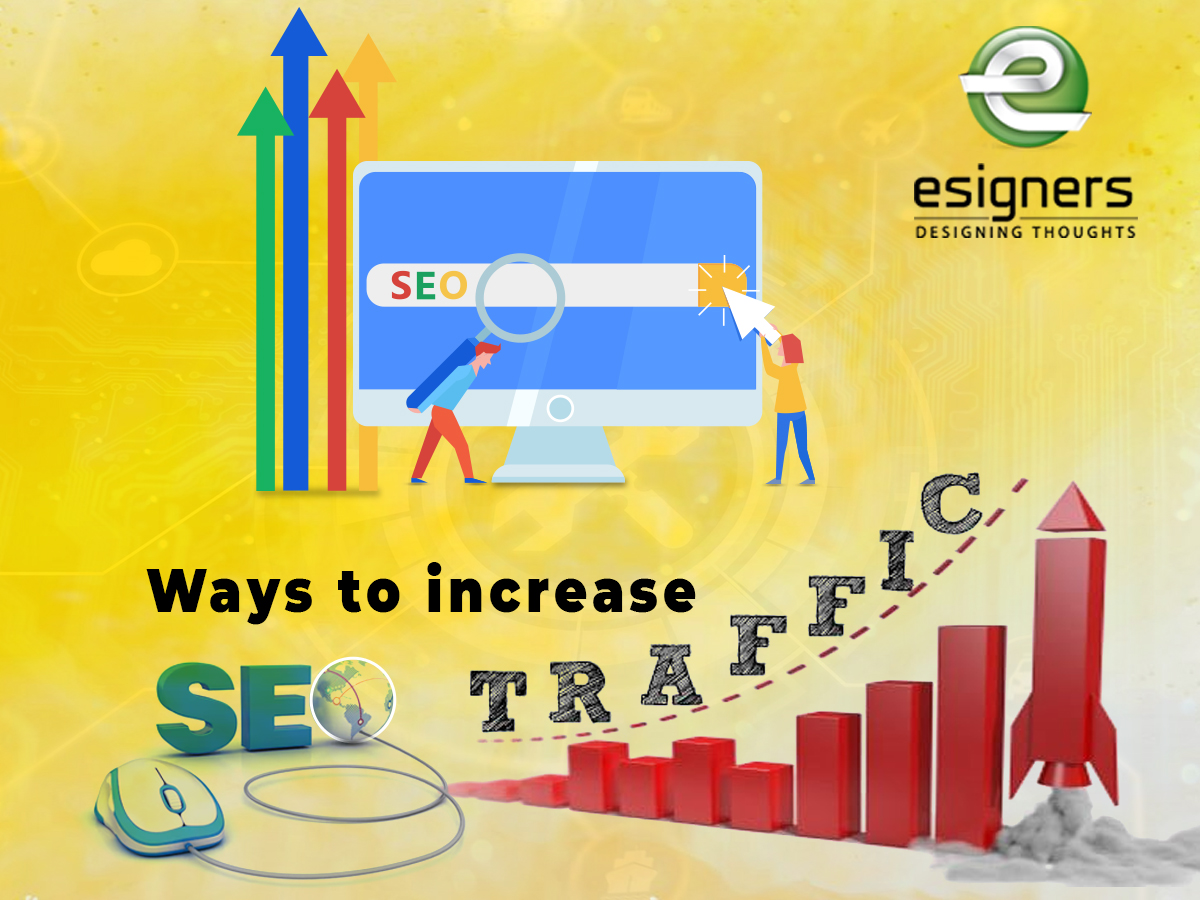Blog
Ways to Increase SEO Traffic

April 12th, 2024 by esigners
Right now, we are going to discuss the most important tips that you need to know to be successful with the SEO (search engine optimization) of your website. The thing with these tips is that they are not mere lip service – they work! For that matter, these tips can help you nail the top spot – or pretty much close to that – for keywords that are relevant to your business. These tips can prove to be helpful for your off-page SEO as well. It does not matter even if you are a seasoned veteran in this domain – these tips can prove to be rather helpful for you.
Using keywords in the right places
It is probably common knowledge that you must add keywords to pages that you are looking to rank. However, the placement of these keywords is extremely important – just as much as the number of times that you use them in your content. To be specific, you need to make sure that your main keyword appears in the title tag of the page, the URL (universal resource locator) of the page, and within the first 100 words in the content over there.
Keeping users longer on your site
You should know that pogo-sticking can be a major determinant as far as your Google rankings are concerned. You might wonder what pogosticking means. Well, this is when a user clicks on your site, checks it out, and then goes back to the search results to find some other site that will be useful for them. When someone pogo sticks it tells Google rather strongly that they did not like your page/site. The number one search engine would downrank your site if it does not satisfy the users. The question is how you can do this – make people stay longer on your site.
Well, a good way to do this is to use lots of subheadings and bullets. This makes your content easier to read and when that happens people spend more time on your website. This also means that they are less likely to hit the back button.
Finding Suggest keywords
You might already know that you can use Google Suggest to find the most relevant long-tail keywords for your business. However, you might not know that you can do this with several other search engines as well. The most prominent among them are Wikipedia, YouTube, and Bing.
Deleting zombie pages
Zombie pages are ones on your site that are not getting you any traffic. They are kind of there without serving the purpose that you intended them to when you created them. The thing is deleting these pages can improve your ranking on Google search engine results. Recently, an e-commerce site did away with 11,000 such pages and saw a 31% improvement in its search engine traffic. At the same time, it also gained 28% in revenue. The thing is it is not only one to have benefited this way. Proven.com has seen an 88.3% increase in its organic search traffic by deleting 40,000 such pages from its site.
Adding keywords related to the content
There is a whole lot more to on-page SEO than only making sure you include the main keyword a certain number of times on your page. That is important but not the end all and be all. If you wish to rank on Google you need to use related keywords and synonyms in the page as well. You may wonder why that is so. Well, the main reason in this case is Google Hummingbird. This particular update lets Google go beyond mere keywords instead helping it understand the topic a page talks about.
Adding text to infographics, videos, and podcasts
Visual content such as podcasts and infographics is a great way to procure both backlinks and traffic. However, there is a major problem with them as well – Google cannot simply understand them! This is why SEO experts will always recommend that you add a whole lot of text to your visual content. You however need to make sure that the content is of a high quality. Such text content helps Google understand what your pages are all about.
Updating old pages
Do you have a lot of old blog posts on your website sitting there gathering dust? If that is indeed the case you can always update them as doing so will increase your search engine rankings. At times, such blog posts may be really good but they still would not perform as well as you expect them to. Their ranking performance would suffer to the extent that they might keep getting sent lower on search engine rankings. This is where upgrades and updates – preferably, major ones – are the order of the day.
There are several other ways in which you can help your SEO traffic such as the following:
• speeding up your website
• using Google Search console
• creating content based on shoulder niches
• getting backlinks from your visual assets
• creating branded keywords
• adding definitions of different issues in your blog posts such as What is X
• ranking in the featured snippets
• finding more opportunities for guest posts
• improving your organic CTR (click-through rate)
The thing with these tips is that they are not the only ones you need to know in this regard but they are, for sure, the most important ones in this particular context.
